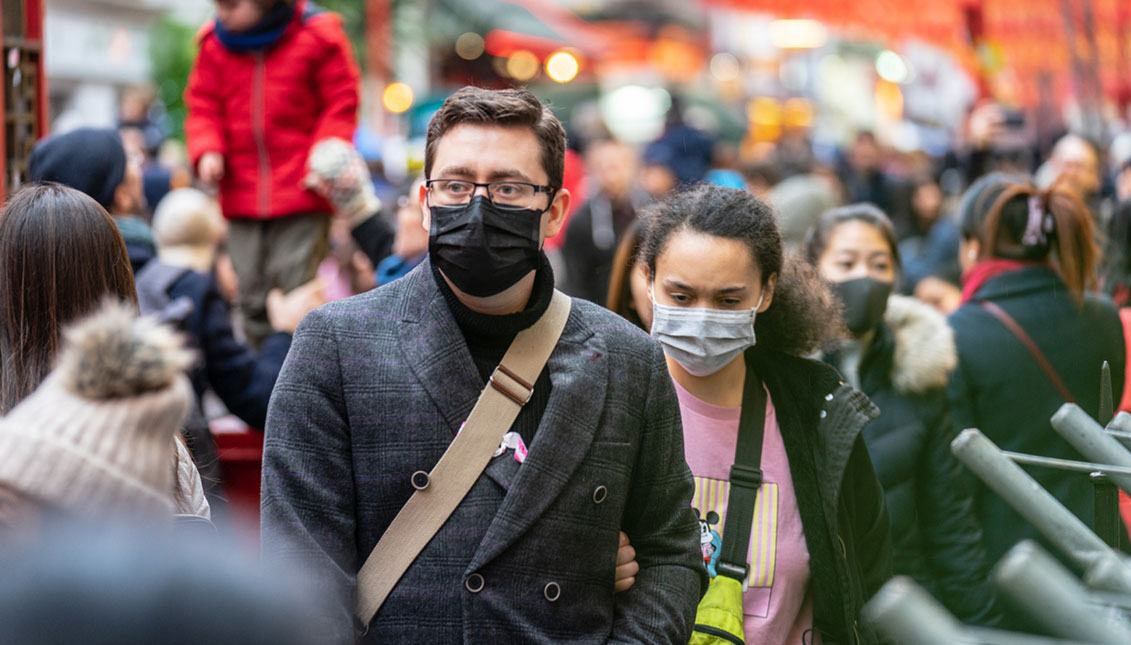
Latinos are more concerned about the Coronavirus –and rightly so
A new study by the Pew Research Center has found that Hispanics in the United States view the COVID-19 pandemic with worse eyes.
In the face of the Coronavirus pandemic, the responses of governments and communities have been radically different: while some seek to solve a public health problem with economic mechanisms, others don’t know exactly what to believe.
What is clear is that the country was not prepared for the aggressiveness of the virus, even though many knew the risk in advance.
For communities of color, in particular, the concerns are more acute.
According to a report published by the Pew Research Center, Hispanics' intimate ties to their community, as well as their economic vulnerability, forces them to see the epidemic through different eyes.
With a population of nearly 60 million in the country, Latinos ended 2019 with the good news of the lowest unemployment rate in history. However, because of the deep economic and racial gap in the country, access to health care and a well-paid job it’s an uphill battle in our community.
Not surprisingly, 70% of Hispanics in the country consider the Coronavirus a major threat to the economy, but also to the health care system.
In the survey conducted by the research center, nearly two-thirds (65%) of adult Hispanics said that the coronavirus outbreak is "a major health threat to the U.S. population as a whole," compared to nearly half (47%) of the general public.
"More Hispanics than Americans, in general, say the outbreak is a major threat to their personal financial situation (50% vs. 34%), daily life in their local community (49% vs. 36%) and their personal health (39 vs. 27%)," the report explains.
This is due, and rightly so, to the working conditions often faced by our community, where few people can resort to remote work (less than 20%, according to the Economic Policy Institute), and where wages, per se, are not ideal.
RELATED CONTENT
"About two-thirds of employed Hispanic adults (66%) say they would not be paid if the coronavirus caused them to miss two weeks or more of work," adds the Pew Research Center, "including about half (47%) who say it would be difficult to cover expenses during this time. By comparison, 54% of employed American adults overall say they would not get paid if they missed two weeks or more of work, including 33% who say it would be difficult to cover expenses.”
Similarly, the study found that workers of color in the United States are frequently employed in the service and hospitality industries, two of the economic engines most affected by government-imposed measures to contain the spread of the virus.
“If just 16% of Latinos are able to work from home, that means that the vast majority of Latino workers are either being forced to risk their health and keep working through the crisis or have lost their income or their job,” Rep. Joaquin Castro (D-Texas), chairman of the Congressional Hispanic Caucus, told The Hill in an email.
Knowing then that Latinos, African Americans, LGBTQ+ people, and undocumented immigrants are the communities most vulnerable to the immediate and long-term effects of the Coronavirus in the United States, government measures such as Congress' approval of the $2 billion aid package do not exactly alleviate the concerns.
According to the Washington Post, the legislation promises to send checks to more than 150 million U.S. households, loan programs for large and small businesses, as well as the injection of billions of dollars "into unemployment insurance programs.”
"Public health is political," Carlos E. Rodriguez-Diaz, associate professor at the Milen Institute School of Public Health at George Washington University, told the Post. "It’s hard to make the right public health policies without the political will, and I think overall that’s what we’re seeing in the United States right now. The public discourse going on is — what is important? Lives or the economy, and whose lives matter.”











LEAVE A COMMENT: